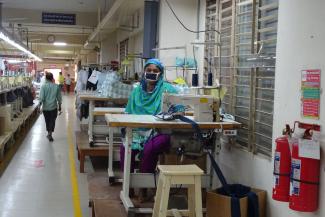Oxfam
Fundamental change needed to overcome inequality

The world’s 1,000 richest billionaires are said to have recouped losses within nine months, and thus are once again as rich as they were before the pandemic. The poorest people, by contrast, may take more than a decade to overcome the impacts of this health crisis. Oxfam expects gender inequality to worsen, and disparities to widen between white, black and indigenous people.
According to Oxfam, the novel coronavirus has caused additional hunger. By the end of the year 2020, at least 6,000 people are estimated to have therefore died of hunger daily. Progress made in terms of fighting poverty in recent decades is likely to be undone (see Belay Begashaw in Covid-19 diary in D+C/E+Z e-Paper 2020/07).
The Oxfam team interviewed almost 300 economists from different countries, and was shocked to find that two thirds of them said their national governments did not have a strategy for reducing inequality. Oxfam opposes market radicalism, which is driven by profit maximisation and patriarchal structures. In the report authors call for fundamental change to safeguard social and environmental justice in the future and to enable all people to live a good life. Everyone, they argue, must have access to public education, health care and social protection. Moreover, corporations and the superrich must contribute their fair share to funding those institutions.
Oxfam wants private-sector corporations to be democratised and insists that they must serve the public good. Management decisions, the authors argue, must take into account the interests of all stakeholders, while shareholders’ dividends should not exceed an upper limit. According to Oxfam, stringent antitrust laws are needed to promote the common good. In addition, sector specific regulations should ensure fair sharing of profits along supply chains. Excessively powerful corporations, the Oxfam experts point out, should be disentangled into several smaller firms that do no longer control markets.
Link
Oxfam, 2021: The inequality virus.
https://oxfamilibrary.openrepository.com/bitstream/handle/10546/621149/bp-the-inequality-virus-250121-en.pdf








